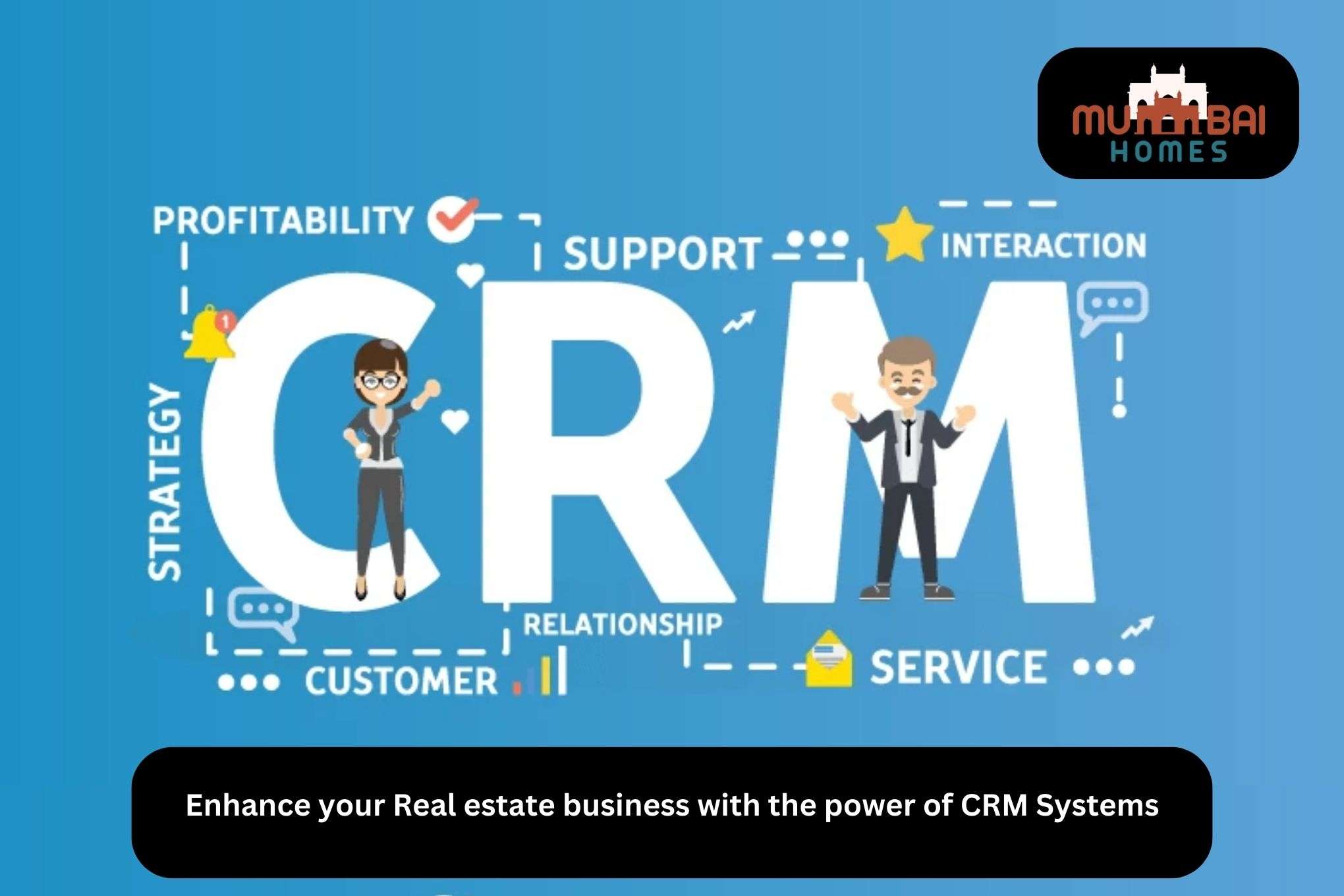Enhance your Real estate business with the power of CRM Systems:
In the competitive global of real estate, effective customer relationship management (CRM) is crucial for success. Managing interactions with customers, tracking leads, and streamlining workflows are only some demanding situations real estate specialists face each day. This is where CRM structures come into play.
CRM systems provide a complete solution for automating repetitive duties, tracking sales and marketing activities, dealing with property listings, and fostering collaboration inside teams.
Real estate business with the power of CRM Systems
I. Automation of Repetitive Tasks and Workflows:
A. Lead Management:
1. Automated lead capturing:
CRM systems can capture leads from diverse sources, such as websites, social media platforms, and emails.
2. Lead scoring:
Assign scores to leads primarily based on their ability, permitting you to prioritize compliance follow-ups and recognition of high-value prospects.
3. Lead nurturing:
Implement automated workflows to nurture leads with customized communication, making sure of consistent engagement.
B. Email Campaigns:
1. Automated e-mail marketing:
CRM systems enable you to create and schedule e-mail campaigns, handing over targeted messages to prospects and clients.
2. Personalization and segmentation:
Segment your contacts primarily based on specific criteria and personalize emails to improve engagement and conversion rates.
II. Tracking and Analysis of Sales and Marketing Activities:
A. Performance Metrics:
1. Sales pipeline visibility:
Gain insights into the development of deals and pick out bottlenecks to optimize your sales technique.
2. Conversion rates
Track lead-to-customer conversion rates, helping you discover effective marketing strategies and channels.
3. ROI analysis:
Measure the return on investment for advertising and marketing campaigns and make data-driven decisions to allocate resources effectively.
B. Marketing Analytics:
1. Campaign Effectiveness:
Analyze the success of your advertising and marketing efforts by using monitoring open rates, click-through rates, and conversions.
2. Customer behavior:
Understand how clients interact together with your content, permitting you to refine your advertising and marketing strategies and target their desires more efficiently.
III. Integration with Other Business Systems and Tools:
A. Property Management:
1. Listing management:
CRM structures permit efficient management of property listings, ensuring correct and updated records throughout multiple platforms.
2. Document management:
Store and prepare property-related files, which include contracts, agreements, and inspection reports, within the CRM system for easy access.
B. Communication and Collaboration:
1. Seamless conversation:
CRM structures provide a centralized platform for conversation with customers, team members, and companions.
2. Task and calendar integration:
Integrate CRM with task management and calendar equipment to streamline workflows and keep track of crucial deadlines and appointments.
IV. Efficient Management of Property Listings and Inventory:
A. Centralized Database:
1. Property data:
Maintain a complete database of property details, consisting of specifications, pricing, availability, and historical information.
2. Search and filtering abilities:
Easily search and clear out properties based totally on particular standards, simplifying the procedure of matching customers with appropriate listings.
B. Inventory Tracking:
1. Real-time updates:
Track inventory modifications and availability in real-time, decreasing the risk of double bookings and ensuring correct property facts.
2. Notifications and alters:
Set up automatic notifications and alters for property updates, making sure of prompt movement and minimizing missed possibilities.
V. Collaboration and Coordination Among Team Members:
A. Shared Database:
1. Team visibility:
Enable team individuals to access and update clients and property facts, fostering collaboration and coordination.
2. Notes and interest logs:
Maintain records of client interactions, making sure of continuity in customer relationships, even if team members change.
B. Task Assignment and Tracking:
1. Assigning tasks:
Easily assign tasks to group members and track their progress inside the CRM system, making sure accountability and efficient task management.
2. Activity reminders:
Set reminders for essential tasks and follow-ups, minimizing the probability of missed opportunities or delays.
Benefits of using CRM systems in the real estate industry
By the use of CRM software to manipulate leads successfully, real estate professionals can growth their possibilities of closing more offers. Use your Real Estate CRM systems to prepare important facts for every lead. It might also include property possibilities, price range, and any notes. Your Real Estate CRM software has to have analytics and reporting capabilities that let you track the development of your leads.
One of the important advantages of Real Estate CRM is that it keeps correct information. With a Real Estate CRM, you may effortlessly update their profile with their new address, contact details, and e-mail. All of your group participants may have to access the current information.
Cultivating a consistent move of qualified leads is vital for the achievement of your business. One tactic that allows you to achieve this is drip campaigns, which are automated e-mail or text message campaigns sent to leads over a certain period.
With cloud-based CRM software, personnel can get access to all features of the device from any device,
Conclusion:
CRM structures have become a crucial element for real estate professionals, enabling them to streamline customer relationship management, automate repetitive tasks, and improve sales and advertising, and marketing efforts.
By integrating CRM systems into their business operations, real estate professionals can gain from improved lead management, a centralized customer database, improved communication, and personalized client reviews. The power of CRM structures extends beyond individual tasks, presenting a holistic approach to optimize workflows, collaborate efficiently, and drive business growth inside the real estate sector.
FAQ:
1. Can CRM systems integrate with other real estate software tools?
ANS. CRM systems can integrate with numerous real estate software equipment, such as property management structures, task management, and e-mail marketing, to streamline workflows and enhance efficiency.
2. Are CRM systems steady for storing sensitive customer information?
ANS. CRM systems prioritize data security and provide sturdy measures to protect sensitive customer information, consisting of encryption, access controls, and regular data backups.




